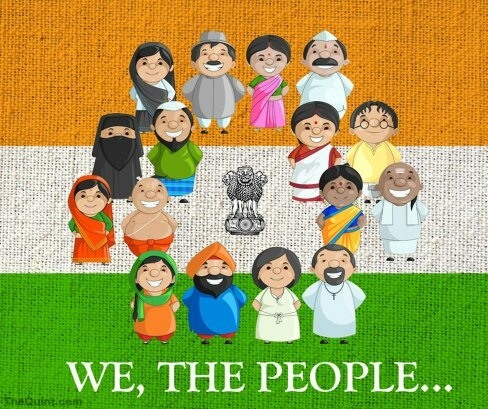The infrastructural expansion of our urban areas has built an illusion of universal progress however for many people it has not been the scenario. Our responsibility as upholders of progressive mind-sets is to search for tales that have been neglected in the wider debate for long and today wait to be told.
Ananya Pathak|Feature Editor | The New Leam
A lot has changed in our urban landscapes since the advent of neo-liberalism including our lifestyles, our roads, the urban infrastructure and the perspectives through which we relate to the world. We find huge boards portraying advertisements in every nook and corner of the city as if seducing us into becoming ‘consumers’ of all new products and services that are launched in the market. From mobile phones and gadgets to housing and real estate, we are being constantly surrounded with projections of a consumerist social order. It is true that new skyscrapers have filled our cities, malls and water parks are no longer exceptions, global brands and luxury food joints have all become part and parcel of the way that we live our lives.

The presence of the neo-liberal age cannot be neglected even for a minute in this age. Today people have an increased purchasing power, have access to products and services, travel the world and see their lifestyles upgrade. While there is immense monetary development and betterment for a section of society but even today for many people the reality of marginalisation and difficulty have not changed much. In a landscape like our own capital for example, both realities coexist in a unique way. We feel the stink emanating from the landfills of Gazipur and the fragrance of perfume and affluence in our posh malls.
There are those whose affluence has been transformed into obsession and there is a large section of people for whom food, shelter and health are aspirations that they find impossible to fulfil. The impact that unequal growth has had on both the sections of the population is different and thus for them the concreteness of the experience has also been diverse. What we must also reflect upon is the idea that the impact that the neo-liberal market society has had on these two sections of people is different in terms of not just lifestyle or acquisition of opportunities but also as far as the environments that they find themselves bound in. People have agitated time and again within the city for their access to fresh air but have they ever wondered about the polluted air that their counterparts on the fringes of the city have to breathe in all the time? Our children play in safe grounds inside the CCTv camera installed courts within our gated communities but have we ever thought about the childhood of the maid’s daughter who has already begun assisting her mother in cleaning and mopping affluent houses?
Installation of air purifiers, recruitment of security to ensure our children are safe, purchasing grocery online and building up an India that recruits only technically educated individuals is bringing us to a circumstance that eliminates a large section of the population from coming to equity with the privileged section. Can individualised solutions to collective issues help us move towards real answers? Can we not create a mechanism where irrespective of qualification individuals find work to ensure that their families eat and children go to school? It is important to understand the fact that our progress as a collective can only unfold if we work together.
The market believes in privatised solutions, it reduces our identities to primarily that of consumers and thus marginalised within us a sense of collective responsibility. Our environment is an important aspect which always reasserts how unfair our development has been. The smell of the air in a specific part of the city would let you know which type of people inhabit there. The condition of roads, the cleanliness of the cityscape and the larger neighborhood hygiene reveal the socio-economic plight of the community. Our gated communities and urbanised life choices have incorrectly convinced us that ours is a developing nation where the plight of individuals is fast becoming better. The moment we decide to travel to an opposed locality, what we find is a reality of marginalisation.
Polluted air, no drinking water, sewage and filth scattered everywhere and the correct ambience for the expansion of disease are all widely available. The myth of universal development and the emancipation of collective are diminished when we adopt critical ideas. For a simple pakoda seller, a contractual labour from a poor state, an electrician, a maid, a barber or the safai karmachari – what would the meaning of progress and improvement in the context of the nation imply? Our task is to see beyond the manifest and find for ourselves the reality that is often masked from our attention. The truth of the fringes, the agony in the marginalised, the trauma of being uncared for and the uncountable stories of neglect. Our work as holders of independent minds and proponents of new thinking is to transcend the given and search for tales of silence from people who have hardly held any importance for the consciousness of political establishment but today wait to find a forum to express their dreams and aspirations.
Did you like the story? Go ahead and support the cause of independent journalism. DONATE NOW














